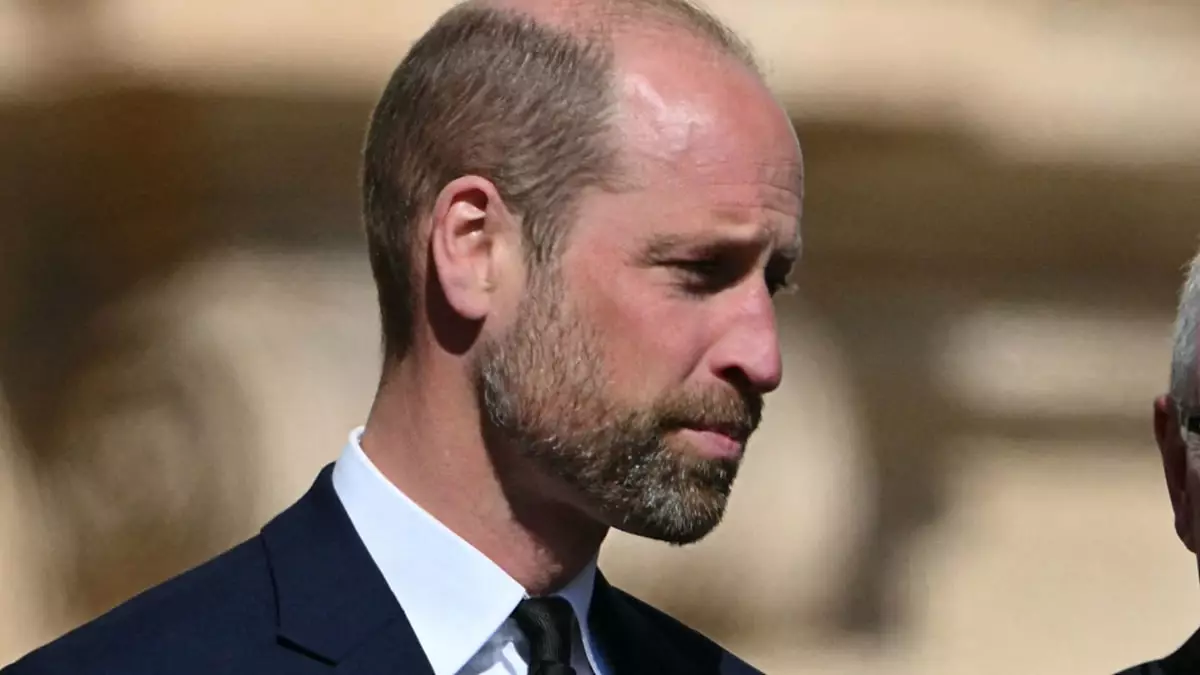Prince William has recently garnered significant acclaim for his dignified comportment during the funeral of Pope Francis, an event that took place in the grand setting of Vatican City. Representing his father, King Charles, the Prince of Wales stood out as the sole British royal amid a congregation of world leaders and dignitaries, making a subtle yet impactful statement through his presence. The service summoned not just a somber reflection on the late pontiff but also highlighted William’s growing role in the royal hierarchy, indicating his readiness for future responsibilities.
While many prominent figures took the stage both literally and metaphorically, William’s grace under pressure resembled that of a poised diplomat rather than a royal figurehead. Engaging in the customary gestures of respect, he approached the Pope’s sealed coffin—a symbol of reverence—and shared silent moments of reflection with UK Prime Minister Sir Keir Starmer. Such actions remind us that sometimes silence speaks louder than words, a sentiment William seemed to embody throughout the ceremony.
The Art of Subtlety
Body language expert Judi James weighed in on Prince William’s demeanor during the funeral, arguing that he exhibited the quintessential traits of a future king. She described his behavior as “almost invisible,” suggesting that he successfully blended into the background while remaining elegantly poised. This calculated modesty stands in stark contrast to other prominent leaders who often dominate discourse with flamboyant gestures and theatricality. William, on the other hand, navigated the occasion with quiet confidence; he executed his role without drawing undue attention to himself while still honoring the weight of the moment.
What stood out was his ability to command the space around him with minimal yet meaningful actions. For instance, his slight bow of the head next to Sir Keir Starmer illustrated not only a personal moment of tribute but also revealed a deeper sense of connection and empathy. Such gestures, though understated, are significant in shaping the public’s perception of royal duty—where respect and decorum foster a sense of communal mourning.
Grace Beyond the Spotlight
Another notable aspect of the event was how William shares this innate quality of understated elegance with his wife, Princess Kate. Although she did not attend the funeral, opting instead to care for their three young children, the essence of their partnership shines through in their collaborative approach to royal responsibilities. Their ability to attend high-profile events without overshadowing the occasion speaks volumes about their character and understanding of monarchy.
Royal fans globally have been quick to express admiration for William’s poise, with social media platforms buzzing with positive remarks. Observers highlighted not only how well he delivered his sartorial choice—a tailored suit that complemented the weight of the occasion—but also how he is increasingly becoming synonymous with the royal image. Such public endorsements are crucial as they solidify his status as a beloved figure within the monarchy even before he ascends to the throne.
Embracing Responsibilities Amidst Change
This moment comes at a pivotal time in Prince William’s life, especially given King Charles’ recent health challenges. As the family navigates this difficult chapter, William appears poised to take on a greater share of royal duties, stepping seamlessly into the public eye during significant events. His active engagement in pressing issues—including environmental advocacy and homelessness—demonstrates a multifaceted approach to leadership.
Commentators have noted that the way he handles his responsibilities at major gatherings, such as Pope Francis’s funeral, serves as a barometer for the future of the monarchy. It suggests that under William’s potential reign, the British Royal Family could prioritize empathy, respect, and a steadfast commitment to community engagement. His ability to balance royal functions with personal passions indicates a new era where the monarchy can remain relevant and meaningful in the lives of its subjects.
Through his actions, Prince William is shaping a narrative of kingship that emphasizes both duty and sincerity, reflecting the values not only of the monarchy but of society as a whole. In a world often characterized by discord, William’s understated grace and dedication to honoring tradition position him as an exemplary future monarch.

